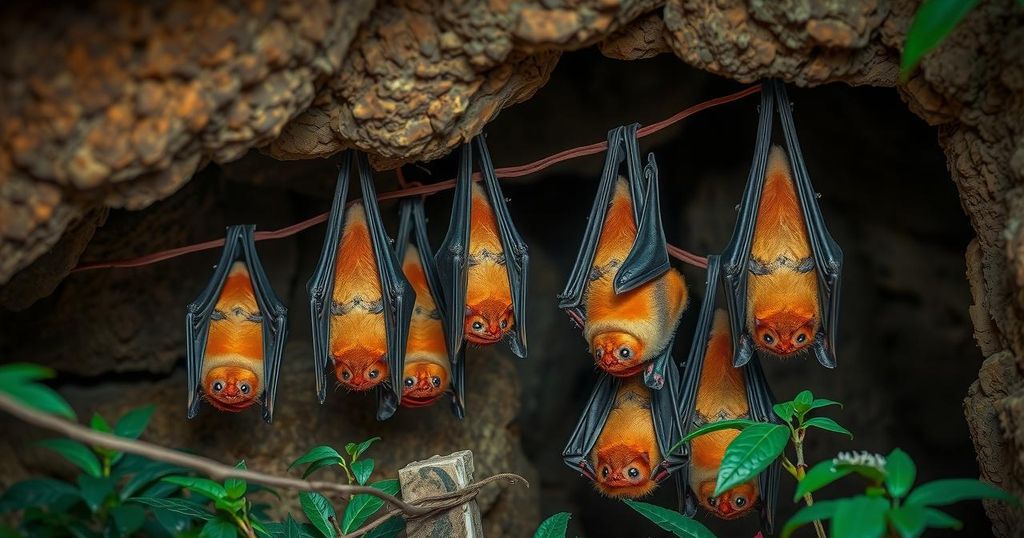A study reveals Brazilian bats harbor a new strain of coronavirus closely related to MERS-CoV, which poses a potential health risk. Researchers are set to conduct lab testing to assess spillover potential to humans. This highlights the ongoing dangers of zoonotic diseases and emphasizes the role of bats as viral reservoirs requiring continuous monitoring.
A recent study has revealed that Brazilian bats harbor a diverse and potentially dangerous pool of coronaviruses, including a new strain closely related to the MERS coronavirus (MERS-CoV), known for its high fatality rate of nearly 35 percent in humans. The study raises alarms over possible zoonotic spillover threats to human health, prompting scientists to initiate laboratory testing to evaluate these risks.
Since its emergence in 2012, MERS-CoV has resulted in 858 known fatalities, primarily affecting regions such as the Middle East, Africa, and South Asia. In contrast, the COVID-19 virus, SARS-CoV-2, has a significantly lower fatality rate of around 2 percent. This context amplifies the concern surrounding the newly identified coronavirus strain discovered in Brazilian bats.
The international research team, led by Bruna Stefanie Silvério at the Federal University of São Paulo, tested 16 bat species and collected over 400 samples to identify seven distinct coronaviruses. Notably, one variant shares an evolutionary connection with MERS-CoV. This discovery marks the first documentation of a MERS-related virus in bats from South America, highlighting a geographical proliferation of such viruses beyond their previously known habitats in Africa, Europe, and the Middle East.
Historically, coronaviruses have been recognized as a threat to human health, with SARS in 2002 being the first major outbreak linked to bats. MERS emerged later, with transmission routes identified as involving bats and camels. Despite MERS’s lower transmissibility among humans, its effects have reached multiple continents through international travel, indicating the global concern surrounding these viruses.
Silvério and her colleagues emphasized the critical role bats play in hosting emerging viruses. They detected components of the virus’s spike protein, suggesting potential interactions with mammalian cells similar to MERS-CoV infection pathways. The team plans to conduct further experiments in Hong Kong to better understand the implications of this discovery.
The awareness of zoonotic diseases has heightened since the COVID-19 pandemic, making the detection of this bat-borne strain in South America a focal point of concern and proactive research efforts. Continuous surveillance of bat populations is essential, as noted by co-author Ricardo Durães-Carvalho, advocating that tracking these viral reservoirs will aid in preventing future outbreaks.
The discovery of a new strain of coronavirus in Brazilian bats that is closely related to MERS-CoV raises significant concerns regarding potential risks to human health. The research underscores the importance of ongoing epidemiological surveillance of bat populations, given their role as reservoirs for emerging viruses. As scientists prepare for further testing, the findings serve as a stark reminder of the continuous threat posed by zoonotic diseases and the necessity for global vigilance.
Original Source: www.sciencealert.com






